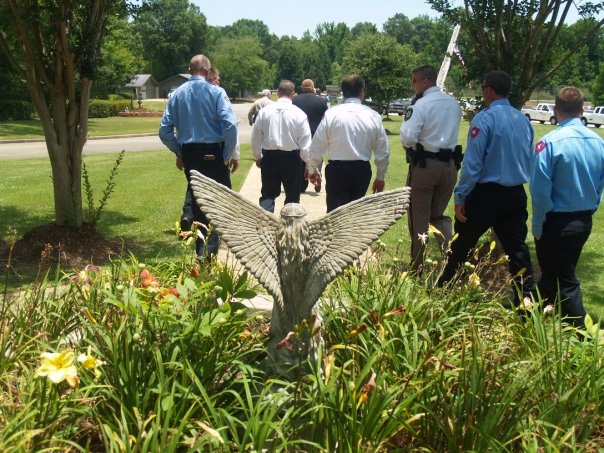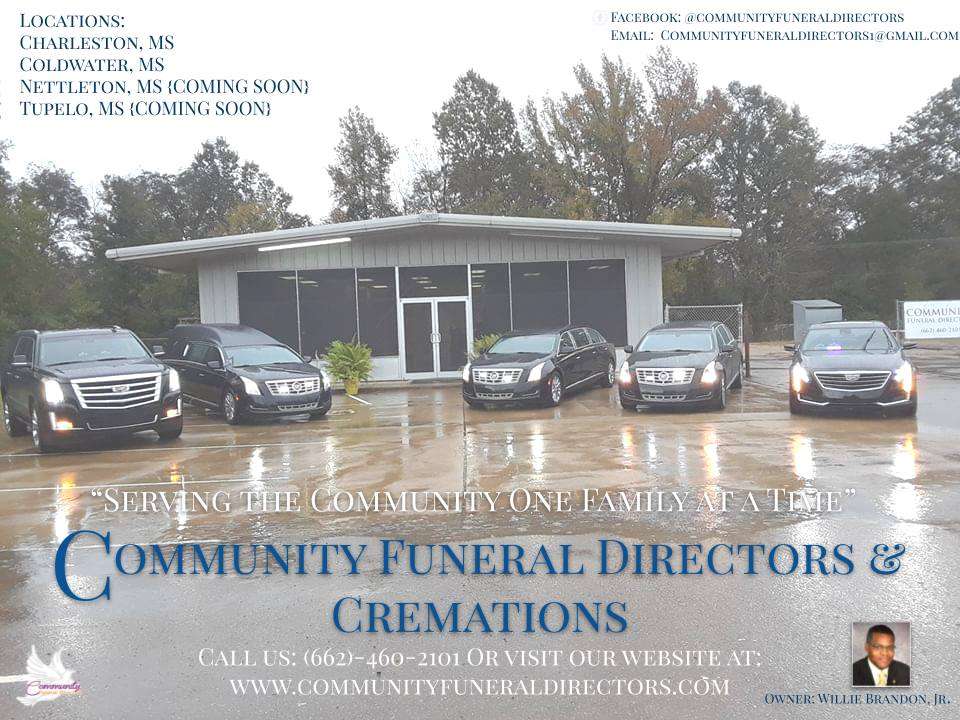
American Medical Response
EOW: 8/08/2020
Paramedic Doug Ming was known by almost the entire pre-hospital medical community in Mississippi.
According to his friends, Ming was not only a great guy and a talented paramedic, he was also responsible for training up scores of younger paramedics and EMTs, teaching them the ways of emergency response through his big personality, quick smile, and skilled hands.
American Medical Response issued a statement late Monday, expressing their sense of loss in Ming’s passing
“Having joined AMR in 2005, Doug was a mainstay at our operation. He was an excellent clinician. He was deeply committed to every patient and to all of his co-workers. Ever dependable, always had a kind word for others. Over his 30-year career in EMS, he earned the trust, respect and love of the central Mississippi medical and public safety communities. He had a great sense of humor, often self-deprecating. He contributed immensely to building the culture within our workforce, that we are all family. To say we are heartbroken doesn’t begin to express our sorrow.”
But in spite of all the lives he saved, the monster he battled on the front lines finally took him down. Ming died over the weekend after fighting a particularly hard campaign against the virus. Facebook erupted with disbelief — everyone was afraid of what could happen, but most didn’t think it would.
It was similar to the death of Hinds County Sheriff Lee Vance last week. Vance had been sidelined by Covid and had just been retested only to find out it was still active in his system when it appears he sat down on his couch and passed away — still in his uniform.
RELATED: Yalobusha County Sheriff Passes Away Of Covid-Like Symptoms
Again, the shock set in. In both cases, there is a feeling that something permanent needs to be done to memorialize the men and women on the front lines of the pandemic, fighting something they can’t see and against which they can’t punch back. It’s as much a line-of-duty death as being overpowered by a suspect or a patient and succumbing to the injuries, so what does it take to recognize it as such?
Law Enforcement:
According to Robert Davis at the Board of Law Enforcement Standards and Training, there were four line of duty Covid deaths submitted to be considered for inclusion on the National Memorial Wall from Mississippi. Lincoln County Corrections Officer Marshall “Bem” London was the only one who was approved because the paperwork had not been submitted from the other agencies as of the time of the decision.
Also on record with the Officer Down Memorial Page as dying from Covid contracted in the line of duty in 2020 are Brookhaven Lt. Marzell Brooks, Pike County Capt. Glenn Allen Green, and Edwards Sgt. Kelvin Dewayne Mixon. Not included on ODMP, but widely known in law enforcement circles was the Covid-related death of Lt. Jeris Davis of the Mississippi Bureau of Investigation.
Davis said the officer’s agency has to submit a death certificate showing the cause of death, and then fill out specific paperwork that among other things, gives evidence that the exposure was in the line of duty.
There is a procedure both that gets the officer recognized on the National Memorial Wall, but also that insures line of duty benefits for the family of the fallen officer, he said.
Story continues after photo:

Firefighters/EMS:

Sardis Fire Department
EOW: 2/08/2020
In February, Sardis firefighter Mook Smith died at age 28 in the hospital from complications of Covid he reportedly contracted on duty in late 2020.
Veteran Leland firefighter Andy Petro only left the house to fight fire, his family said, and caught it somehow. He died in November after 57 years in the fire department.
Mississippi State Fire Academy Executive Director Terry Wages said for firefighters and emergency medical services, it’s a little harder than for police officers. For those running medical calls, there are currently multiple exposures per day, which can make tracking a nightmare.
“It’s going to have to have traceability back to contact timeline documentation, because as with exposure contact, you’ve got to be able to connect it,” said Wages. “The Sardis gentleman had confirmed exposure and within an amount of days he was down.”
Wages said it could be easier to classify exposures as having happened in the line of duty if it were a less prolific disease.

Leland Fire Department
EOW: 11/02/2020
“It’s so widespread. The contact exposure, the traceability — you’ve got to be able to somehow narrow it down to ‘Yes, he caught it at this scene,'” he said. “You can certainly label it as a line of duty death, but proving what they need for benefits for the family is harder.”
For career paramedics and EMTs, it can be exponentially harder because call volume is up and so many of the calls are Covid-based. Simply listening to an EMS radio channel, the listener is assured that he or she will hear call after call for “Difficulty breathing, patient is Covid positive.”
“It’s a mess out there, and there are no signs of it getting better,” Wages said. “There are not enough paramedics, not enough trucks. And it’s not just one, but all the ambulance services.”



















